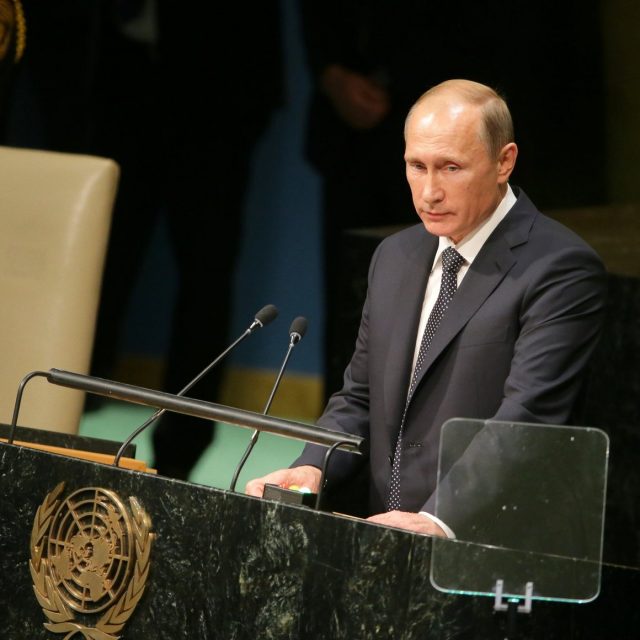Marcel Ciolacu, President of the European Social Democratic Party, has complained about changes to the Romanian electoral legislation.
The letter was sent to the President of the European Commission, Ursula
von der Leyen, as well as to the President of the European Parliament,
Davin Maria Sassoli; the President of the Venice Commission, Gianni
Buquicchio; to the Secretary General of the European Council, Marija
Pejčinović Burić, and to the President of PES, Sergei Stanishev.
It says the structural change of the Romanian electoral legislation are “contrary to the European standards of good practice in electoral matters.”
It reads: “I am writing to you in a difficult context for the Romanian democratic system. Only a few months before the local elections, which are due to take place this year in May, the political forces currently governing Romania wish to impose major structural changes of the electoral system.”
“Namely, the ruling parties intend to move from the election of mayors
and chairmen of County Councils in one round to their election in two
rounds. In a contradictory way, those who support this unexpected change are the same decision-makers who established in 2011 the current electoral system (first applied in 2012), which proves their lack of
consistency and the purely circumstantial motivation that is behind the
intention to amend the electoral legislation.”
“Thus, the parties governing Romania exceed in an abusive way the limited mandate they were entrusted with by the Parliament and undertake actions which run the risk of impairing trust in Romanian democracy and the rule of law.”
“I am a man of dialogue and I tend to believe that this is true for most
of my colleagues, parliamentarian or political leaders. Such a dramatic
revision of the electoral system should solely be the result of a public
debate in the Parliament of Romania. Grounded on reasons, through
constitutional and legal approaches, we might have made such a major
change of the electoral legislation that could have been applicable in
the next electoral cycle without affecting the electoral process already
underway.”
It adds, “In our view, mirrored by the previous positions adopted by the most representative European bodies in this matter, as the Venice Commission, such structural changes of electoral system directly affect the stability of the electoral law, which might favour certain parties in
their attempt to create favourable conditions for their own benefits in
the electoral competition.”
“Thus, we witness an obvious abuse of power that is a flagrant violation
of the Romanian Constitution and of the standards of good practice in
electoral matters, as defined by the Venice Commission and shared by all
Member States of the European Union.”
“We believe that, by making so extensive changes of electoral
legislation, shortly before the date of elections, an unacceptable
precedent within the European Union would be created, with unpredictable effects on the long term, which might irreversibly alter the
fundamentals of Romanian and European democracy.”
“Moreover, the Government has publicly announced its intention to make these changes through the procedure of assumption of responsibility, which would practically annihilate any public or parliamentary debate on this topic so important for democracy and for the rule of law in Romania. As the Constitutional Court of Romania states, the assumption of Government’s responsibility is a procedure that can only be used in completely exceptional circumstances, which should be used only in situations that require the urgency of enactment, and by no means when regulating the fundamental elements and principles of the electoral system.”
“Unfortunately, our readiness to dialogue, as well as democratic rules
and European principles were ignored by the political forces governing
Romania today. The approach by the current ruling parties is rather the
evidence of a purely circumstantial interest in their temptation to
misuse state power, to create an unfair advantage in their own interest,
without any connection to public interest and to fundamental values on
which European democracy was built.”
“The rule of law is endangered by this unprecedented abuse of power in
Romania. In this regard, I call on your personal authority and
experience, as well as on the competences of the institution you
coordinate, so that you take all necessary measures to avoid a flagrant
violation of democratic rules accepted by all Romanian political actors
in the last 30 years.”
“Viewing those outlined above and the legal documents we refer to, I ask
for your support in order to avoid such a situation which might affect
confidence in Romanian democracy. Such a decision, if left unchallenged
at European level, could lead to an authoritarian slope that I have
always wanted to avoid, no matter who the author was.”
“Hoping for a quick reaction that will block these abusive changes and
some measures that will help consolidate Romanian democracy, I assure
you Mrs. President, of my full willingness to honestly work together
with you, in order to promote European democratic values in Romania.”
“I hereby attach the main constitutional and principle-based aspects that
should be considered in the analysis and evaluation of the situation
presented in this letter.”




